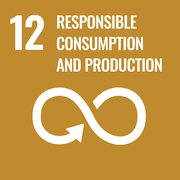
From “alien” soil microbes to natural vaccines for plants: the green revolution of digestate
The research, which is also the subject of an international patent, opens up new prospects for reducing chemical fertilisers and pesticides, contributing to more sustainable and circular agriculture. However, digestate, known as a natural fertiliser due to its nutrient content, has two critical issues: its nutritional imbalance and the presence of a rich microbial component that can limit its agronomic efficiency.
If applied without adequate assessment, it can cause various environmental problems (from excessive enrichment of soil and aquatic ecosystems to the introduction of “alien” microbial biomass into agricultural land). To overcome this limitation, the group coordinated by Vincenzo Lionetti of the “Charles Darwin” Department of Biology and Biotechnology at Sapienza University has developed an innovative green biorefining process for digestate.
Through metagenomic analysis, researchers identified a diverse microbial community in the liquid fraction of the digestate, from which a protein extract was isolated containing molecules capable of activating plant immune defences, including microbial peptides derived from Flagellin and Elongation Factor Tu and the olive phytocytokine Golven. The application of the extract on Arabidopsis and tomatoes stimulated a rapid immune response and greater resistance to fungal and bacterial pathogens.
‘The refining process, based on green chemistry steps, will enable biorefineries to enhance the value of their by-products, incorporating them into new value chains for sustainable and integrated agriculture, capable of drastically reducing the use of synthetic chemical pesticides,’ says Vincenzo Lionetti.
The research was carried out as part of the European Horizon Europe project OLinWASTE – Smart Sustainable Biorefining of Olive Mill Waste into Biocompounds for Plant and Soil Health, Bioplastics, and Bioenergy and the Sapienza Rome Technopole innovation ecosystem, highlighting the importance of national and international collaboration for the development of innovative and sustainable solutions in the agro-industrial sector. The collaboration with Agrolio-Agroenergy, a pioneer in the use of olive pomace to produce thermoelectric energy, strengthens the synergy between research and industry for the circular bioeconomy.
References:
Marco Greco, Daniele Coculo, Angela Conti, Savino Agresti, Daniela Pontiggia, Hugo Mélida, Lorenzo Favaro, and Vincenzo Lionetti - Biorefining of Anaerobic Digestates for the Recovery of Biostimulants and Bioelicitors for Immune Priming and Plant Protection
Environmental Science & Technology, 2025 - DOI: 10.1021/acs.est.5c03321
Further Information:
Vincenzo Lionetti
Department of Biology and Biotechnology Charles Darwin
Sapienza Università di Roma
vincenzo.lionetti@uniroma1.it
